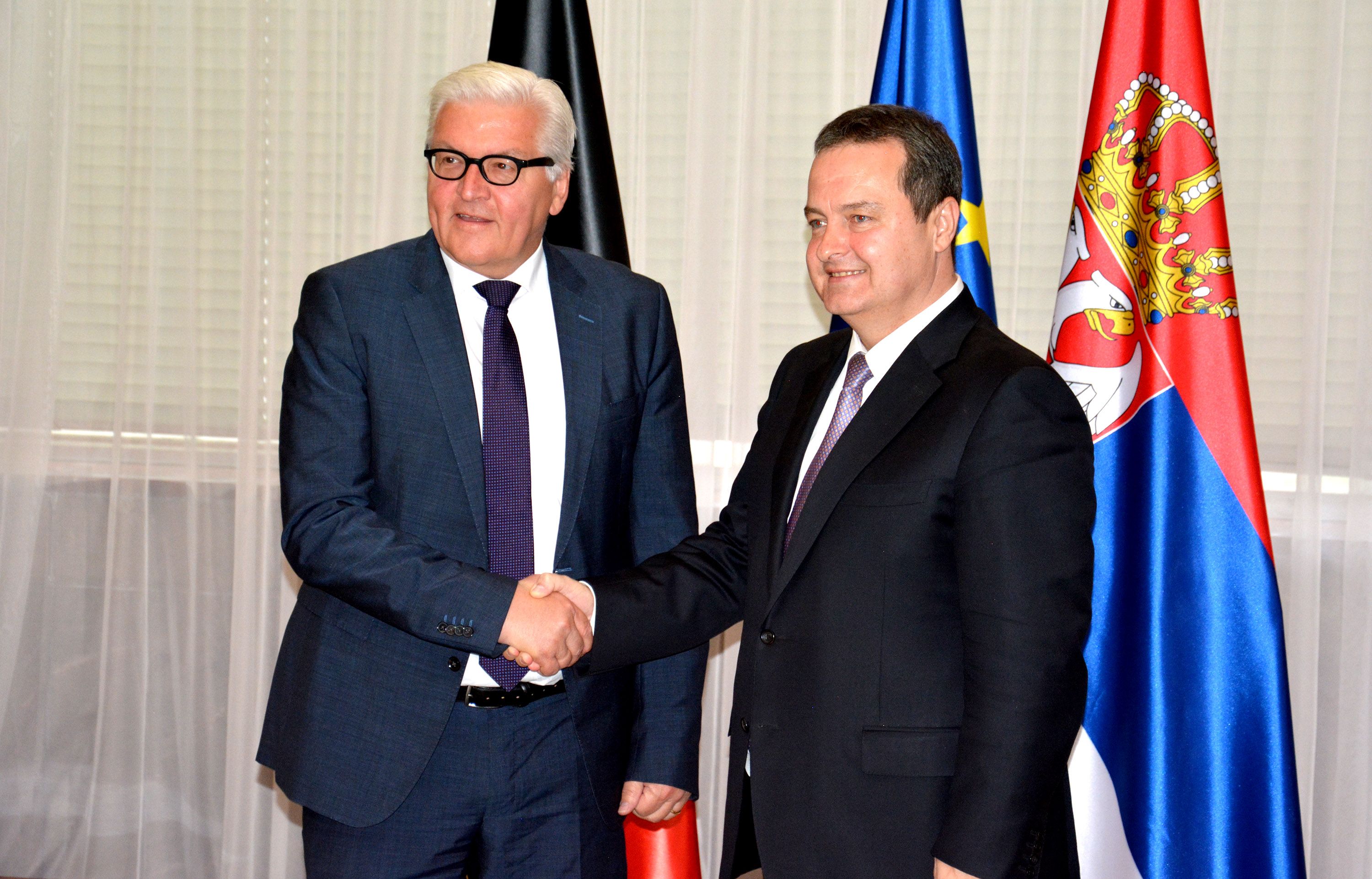



| Tuesday, 28 April 2015. | |
| Steinmeier on a visit to Serbia | |
| + larger fontnormal font- Smaller font |
 First Deputy Prime Minister and Minister of Foreign Affairs Ivica Dacic met today with Federal Foreign Affairs Minister of Germany, Frank-Walter Steinmeier, who is First Deputy Prime Minister and Minister of Foreign Affairs Ivica Dacic met today with Federal Foreign Affairs Minister of Germany, Frank-Walter Steinmeier, who ison a bilateral visit to Serbia. Head of Serbian diplomacy Ivica Dacic assessed that bilateral relations between Serbia and Germany were good and underlined them being at a considerably higher level, of better quality, more comprehensive and based on a much greater confidence today than before. The Minister added that these relations were characterized by intensive cooperation in all areas, high-level dialogue and a constant trend of advancement. He underlined that Serbia was ready and open for further strengthening the overall bilateral relations with Germany, expressing his assurances that it was in the mutual interest. The quality of our relations is largely determined by the regula and intensive high-level political dialogue, confirming the advanced level of mutual understanding. Minister Dacic especially underlined the good economic relations, stating that trade in 2014 amounted to EUR 3.183 billion, and noted that Germany was among the leading investors in Serbia and the greatest development aid donor. Minister stressed that our key interests were to increase the level of German investments in infrastructure projects, cooperation in the fields of car industry and energy, and also the value of trade. The Head of Serbian diplomacy particularly stressed that EU membership was the primary foreign policy interest and strategic goal of Serbia, emphasizing that the screening process had been successfully brought to an end, and that our belief was that entering a new, more advanced phase of the negotiation process, by opening the negotiation chapters, was due at this juncture. Serbia is fully prepared for the opening of Chapter 32, yet acknowledges the position of Germany that the negotiation process should be launched with other chapters. Serbia will continue its constructive approach to the negotiation process, but it is extremely important to find solutions in the coming period, and reach an agreement on the launch of the negotiations. Minister Dacic also added that Serbia was taking all the necessary measures in an attempt to lower the number of asylum seekers from Serbia to Germany, stressing that the country itself was facing an increment in asylum seekers on its own territory as well. Federal Minister of Foreign Affairs Frank-Walter Steinmeier assessed that political and economic relations were good, that German companies were interested in conducting business activities in Serbia, but also that the companies already operating in Serbia were satisfied with the business environment. He expressed his gratitude for the measures the country was taking in the prevention of "false" asylum seekers migration to Germany, adding this was a very sensitive issue in the German public. The German Federal Minister stressed he would like to commend the reform process in the country, activities related to the dialogue with Pristina, and also the efforts of Serbia in strengthening good-neighbourly relations and stability in the region. He underscored that Germany supported Serbia's EU integration process and added there were no additional conditions, and that Germany endeavoured to stimulate and act positively with regard to the Western Balkans region's EU accession. He stressed that he would act constructively in European circles in support of the decision being made to launch Serbia's EU accession negotiations by the end of the year. |